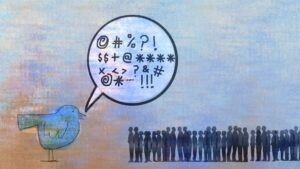English Education Ireland, formerly known as Marketing English in Ireland – a leading association for the English Language Education sector – has announced that its members are withholding their applications for the new statutory accreditation scheme TrustEd Ireland.
TrustEd Ireland is a new statutory quality mark from Quality and Qualifications Ireland, and part of a suite of legislative measures designed to protect international learners. The new mark will be awarded to higher education and English language education providers who have demonstrated that they meet national standards.
The decision of members to boycott the new framework comes in response to what the association calls a “punitive and unsustainable” fee structure associated with the mark and also with emergency student protection fund, the Protection of Enrolled Learners (PEL) sinking fund.
“The proposed fees under the TrustEd Ireland are not just excessive – they are crippling,” said Lorcan O’Connor Lloyd, CEO of English Education Ireland.
“We cannot, in good conscience, support a regulatory framework that threatens the very survival of our institutions.
“Our sector has consistently advocated for strong regulatory oversight, but what is being proposed is a financial straitjacket that will force many providers out of business. Until a fair and sustainable fee structure is introduced, we have no choice but to withhold our participation.”
English Education Ireland members take issue with the initial application fee of up to €30,000 and a recurring annual charge of up to €20,000. The association argues that on top of this, the PEL sinking fund could cause insurance costs to rise fivefold, resulting in annual insurance bills exceeding €100,000 for many ELE providers.
“The fees dwarf the costs for regulated providers in other ELE markets, such as the UK, Australia, and Canada,” said Lloyd.
“The fees proposed here are up to ten times higher than those in comparable markets. Validated ELE providers in the UK contribute £200 total per year to their equivalent emergency student protection fund. How the government expects SMEs in this sector to afford hundreds of thousands of euros annually beggars belief.”
English Education Ireland is therefore calling for an urgent review of the fee structure and a commitment to greater transparency in the regulatory process.
The fees dwarf the costs for regulated providers in other ELE markets, such as the UK, Australia, and Canada
Lorcan O’Connor Lloyd, English Education Ireland
“The association remains steadfast in its support for high standards in education but insists that these standards must be achievable without jeopardising the sector’s financial viability,” it said in a statement.
“We urge the Department and QQI to engage with the sector and consider alternative fee models that are fair, transparent, and sustainable for all providers,” added LLoyd.
“Our schools contribute significantly to local economies, and we need to ensure that TrustEd Ireland supports, rather than hinders, this contribution.”
The PIE News approached TrustEd Ireland for comment on the concerns raised in relation to the fees, to which a spokesperson commented: “TrustEd Ireland is a unique, state-backed accreditation scheme for international education in Ireland. It positions Ireland as a leader in the global education market.
“It lets the international learner know that authorised TrustEd Ireland providers deliver a high-quality education experience which has been rigorously assessed, and that their programme is protected.
“Information concerning the policy, criteria and application processes for providers seeking authorisation to use the international education mark, including fees and charges, are available on our website… We encourage all providers interested in applying to use the TrustEd Ireland mark to review these materials carefully, and to contact us if they require further information.”





